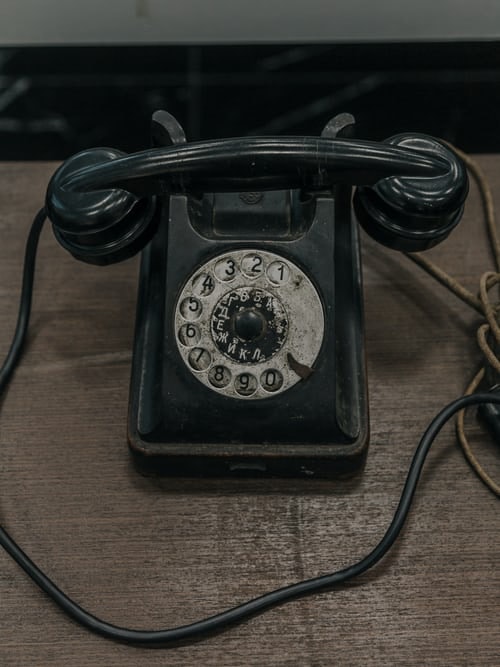Death of the Landline Phone
MTNL: Mera Telephone Nahi Lagta.

“We should cancel the Landline Phone. Nobody is calling on that anymore. We are wasting money every month.” My mom told me while we were video chatting thru Whatsapp.
Flashback to my childhood. I was the youngest in my house, and every time the phone rang, I ran to pick it up. I was six years old. My dad’s friends referred to me as “Telephone operator.” I thought it was a compliment.
Our apartment was the first one to get a telephone on the entire floor. Our neighbors and their near and dear ones all had our number. Every time there was a call for the neighbors, I used to run to their house to call them. I was a vital person for the neighbors, and they made sure to give me chocolates. My neighbors came for a call and then gossiped with my mom and grandmother for hours. There were different neighbors each time, but the Masala Chai for everyone was a constant. The only time calls were not allowed was between two to four in the afternoon when it was time for mom’s and grandmom’s siesta.
We moved into a new apartment when I was nine years old. My father’s best friend’s wife worked for MTNL, ensuring we did not have to wait for the new telephone line. In those days, a telephone line brought more joy than a child’s birth. The telephone services were still very basic. To call my Aunt in Baroda, we had to book a Trunk call. We waited in front of the black rotary phone for hours before the call went through.
Sam Pitroda, our then PM Rajiv Gandhi’s friend, left the US to start a communication revolution in India. He started STD and ISD facilities. We could now call our Aunt in Baroda without going thru the operator. We still had to wait till 10 pm to call, though; the rates were quarter of regular rates.
The one bad thing that happened was that we had to pay an extra rupee for each local call over three minutes.
“All things important can be conveyed in three minutes. Anything over that is wasteful gossip.” My father proclaimed.
Papa audited the MTNL bills each month, and anyone who spoke for over 3 minutes needed to explain. Even today, I cannot talk to anyone on the phone for over three minutes. Be it a client or a friend or my wife.
Monsoons were the worst for telephones. After a few drops of rain, a ‘Grrrrrrrr’ sound would emanate from the phone and then nothing: the phone would go blank. We would instruct the watchmen of the building to let us know when the MTNL repairmen were in the area. The repairmen would come and fix it, and Samosas, chai, and sometimes cash would be his reward. My grandmom missed the phone the most as she couldn’t talk to her daughters. We felt the repairman sometimes disconnected the line to have her delicious samosas. She would pack it for their families as well.
In my teenage years, romance was not easy. Nobody had cell phones. I had to tell my cousin sister to call my girlfriend and then give the phone to me. I had to bribe my cousin; otherwise, she would refuse to help. When she was not there, blank calls were the only option if her parents or brother picked up. Thank God for no caller id.
A few years later, cell phones appeared. The call rates per minute were so high that most people used cell phones only in emergencies. “Missed calls” became a common vocabulary.
“When you reach below my house, give me a missed call, and I will come down,” my friend would say.
Incoming calls on the cell phone were free, so everyone used to give ‘missed calls’ to the landline, and people would call them back. Landline Phone was the king, though; now the cordless push-button phones replaced the black rotary telephones in most homes.
At present, everyone has cell phones. Voice call, video calls, texting, watching videos is an everyday thing for us. The once most important landline phone sits in a corner staring at us. It has had its run. It is too old now—time to pull the plug.